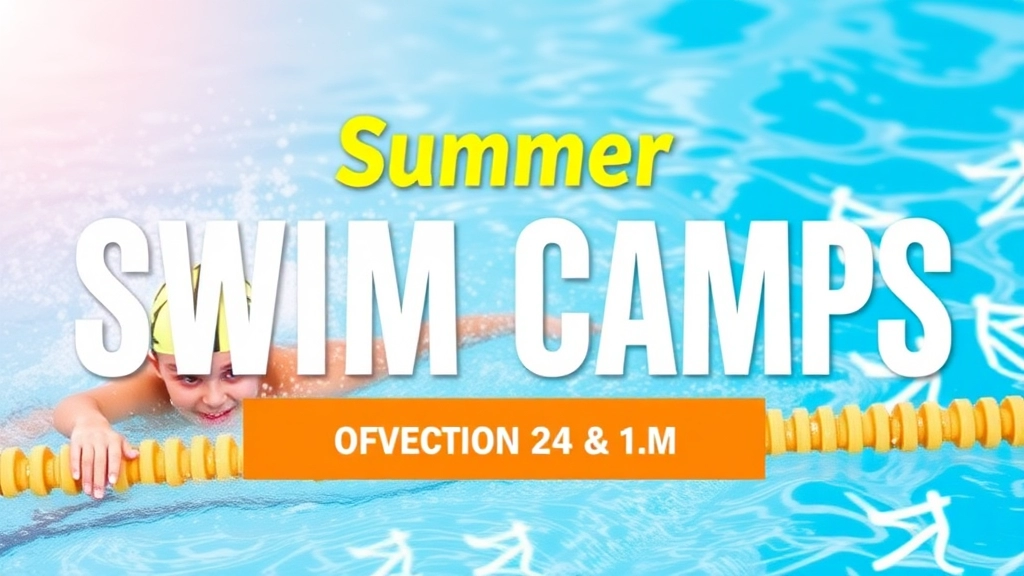Summer Swim Camps in the USA
Summer swim camps in the USA offer an unparalleled opportunity for young swimmers to enhance their skills while having fun. This article explores the top camps, highlighting their specialized training programs, prime locations, and world-class facilities. Whether your child is a beginner or an advanced swimmer, these camps provide tailored experiences to suit every age group and skill level.
From expert coaching to comprehensive safety measures, these camps ensure a supportive and secure environment. We’ll guide you through the daily activities, registration process, and even share real testimonials from parents. Dive into our detailed overview to find the perfect summer swim camp and make this summer unforgettable for your child.
Top Summer Swim Camps in the USA
Ever wondered which summer swim camps in the USA are truly worth your time and money? You’re not alone. Parents and young swimmers alike often stress about finding the perfect camp that offers both top-notch training and a fun experience. Let’s dive into the top summer swim camps across the country that are making waves for all the right reasons.
Why Choose a Top Summer Swim Camp?
Here’s the deal: not all swim camps are created equal. Some camps are all about getting those personal bests, while others focus on the overall experience. The best camps? They give you both. They combine professional coaching, state-of-the-art facilities, and a supportive environment where swimmers can thrive.
What Makes These Camps Stand Out?
- Expert Coaching: Top camps feature coaches who have been there and done that. We’re talking Olympians, NCAA champions, and seasoned professionals who know the ins and outs of competitive swimming.
- Specialised Training Programs: These camps offer tailored training programs that cater to all skill levels, from beginners to elite swimmers. Whether you’re looking to improve your butterfly stroke or shave seconds off your freestyle, these camps have got you covered.
- First-Class Facilities: Think Olympic-sized pools, advanced training equipment, and comfortable lodging. The facilities at these camps are designed to give swimmers the best possible environment to train and relax.
- Comprehensive Safety Measures: Safety is a biggie. These camps have stringent safety protocols to ensure that every swimmer is well-supervised and secure at all times.
Top Picks for Summer Swim Camps
- Nike Swim Camps: Known for their high-quality coaching and excellent facilities. They offer a range of programs across various locations, making it accessible for many.
- Bolles School Swim Camp: Located in Jacksonville, Florida, Bolles is famous for producing Olympians and world record holders. The camp offers a rigorous training regime.
- Stanford Swim Camp: Held at the prestigious Stanford University, this camp combines world-class coaching with top-tier facilities.
- Michigan Swim Camp: Led by the University of Michigan’s coaching staff, this camp offers a blend of intensive training and fun activities.
- Texas Longhorns Swim Camp: If you’re looking for a camp with a rich history of swimming excellence, this is the place. The camp is run by the University of Texas and offers a comprehensive training program.
Real Stories from Real People
Take Sarah, a 14-year-old swimmer who attended the Stanford Swim Camp last summer. She was initially nervous about the intense training but ended up loving every minute of it. “The coaches were incredible, and I made so many friends who shared my passion for swimming,” she says.
Or consider Jake, a parent who sent his 12-year-old son to the Nike Swim Camp. “The improvement in his technique was noticeable, and he came back more confident than ever,” Jake reports.
What’s Next?
If you’re seriously considering a swim camp this summer, start by researching the ones mentioned above. Check their websites, read reviews, and maybe even reach out to former attendees. Trust me, the right camp can make a world of difference in a young swimmer’s life. For more tips on selecting the perfect camp, visit our guide to summer camp activities.
Specialized Training Programs
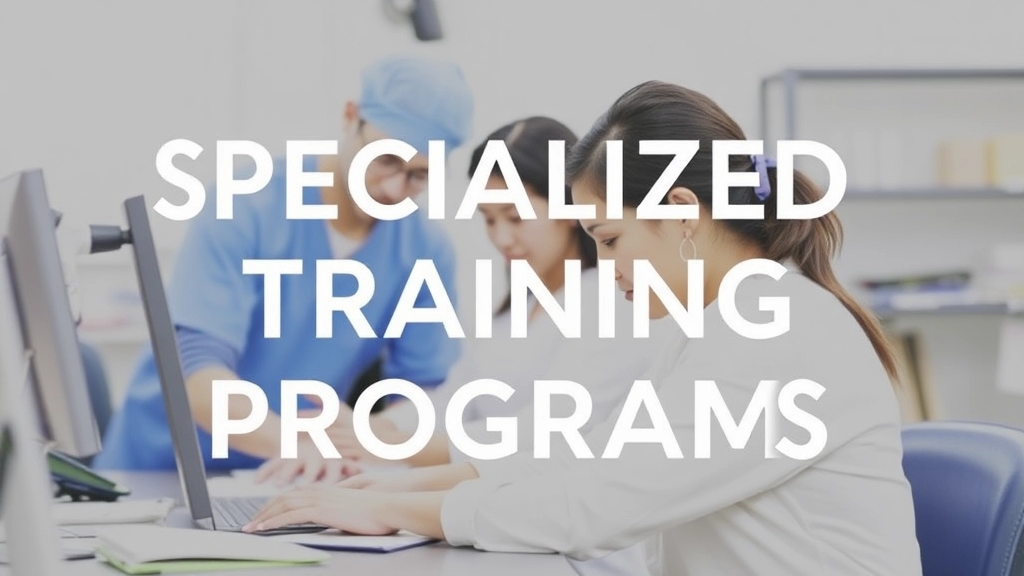
Ever wondered if your child’s swimming skills could go from good to phenomenal this summer?
You’re not alone.
Let’s dive into what makes specialized training programs at top summer swim camps in the USA a game-changer.
Why Specialized Training?
We all know the basics, right?
Swim faster, stronger, better.
But specialized training is where the magic happens.
Think tailored workouts, personalised coaching, and focused drills.
These programs are designed to meet your child where they are and take them to the next level.
What’s Involved?
Here’s the lowdown:
- Stroke Technique: Perfecting those strokes—freestyle, backstroke, breaststroke, and butterfly.
- Endurance Training: Building stamina so they can keep going, lap after lap.
- Speed Work: Because who doesn’t want to be the fastest in the pool?
- Strength Conditioning: Dryland exercises that build muscle and power.
- Mental Training: Mindset is everything. Techniques to stay focused and confident.
Real Stories, Real Results
Picture this: Sarah, a 12-year-old who joined a specialized program last summer.
She went from middle-of-the-pack to winning her age group’s 100m freestyle.
Her secret? A mix of targeted drills and one-on-one coaching that zeroed in on her weaknesses and turned them into strengths.
Who Should Enrol?
Is your kid serious about swimming?
Do they dream of smashing personal bests or making the school team?
If you nodded yes, specialized training is for them.
The Benefits
- Personal Attention: Smaller groups mean more one-on-one time with coaches.
- Custom Plans: Workouts tailored to individual needs.
- Rapid Improvement: Focused training yields faster results.
- Confidence Boost: Mastering new skills builds self-esteem.
How to Choose the Right Program
Look for camps that offer:
- Experienced coaches with a track record of success.
- Comprehensive training that covers all aspects of swimming.
- Positive reviews from parents and swimmers.
Camp Locations and Facilities
Alright, let’s talk about something everyone’s curious about: Camp Locations and Facilities. If you’re like me, you’re probably thinking, âWhere’s this camp? What’s it got?â Let’s cut to the chase.
Prime Locations Across the USA
First off, you want a camp that’s not in the middle of nowhere, right? The top summer swim camps are spread across prime locations in the USA. Think about places like California, Florida, and Texas. Why? Because these states have:
- Top-notch weather: Sunshine galore, perfect for swimming.
- Proximity to major cities: Easy access for travel and emergency services.
- Scenic beauty: Beaches, lakes, and more, making the whole experience more enjoyable.
World-Class Facilities
Now, let’s get into the facilities. You’re not just looking for any old pool. You want the best. Here’s what you should expect:
- Olympic-sized pools: These camps boast pools that meet competitive standards. You’re not swimming in a backyard pool here.
- High-tech equipment: From underwater cameras to advanced timing systems, the gear is top-notch.
- Dryland training areas: Think gyms with all the equipment you need for strength and conditioning.
- Comfortable accommodations: Dorm-style rooms or cabins that are clean and secure. No one wants to rough it after a long day of training.
Real Stories from Real Camps
Let me share a quick story. I remember visiting a camp in Florida. The facility had an Olympic-sized pool with underwater speakers. Imagine swimming laps while listening to your coach’s instructions in real-time. It was a game-changer. The kids there were not just training; they were getting a professional experience.
Why Location and Facilities Matter
You might think, âWhy should I care so much about location and facilities?â Here’s the deal:
- Better facilities mean better training: You get access to the same equipment and environments that pros use.
- Convenience and safety: Being close to major cities means better access to healthcare and other amenities.
- Enhanced experience: Scenic locations make the camp more enjoyable, which can boost morale and performance.
Quick Checklist for Choosing a Camp
When you’re picking a camp, keep this checklist handy:
- Location: Is it easily accessible? Is it in a safe area?
- Facilities: Do they have an Olympic-sized pool? What about dryland training areas?
- Accommodation: Are the living quarters clean and secure?
- Extra amenities: Do they offer anything unique, like underwater speakers or high-tech training gear?
If you’re looking for more tips on choosing the best camps, check out our top picks and tips for Charleston summer camps. For those on a budget, our guide to affordable summer camps might be just what you need.
Age Groups and Skill Levels
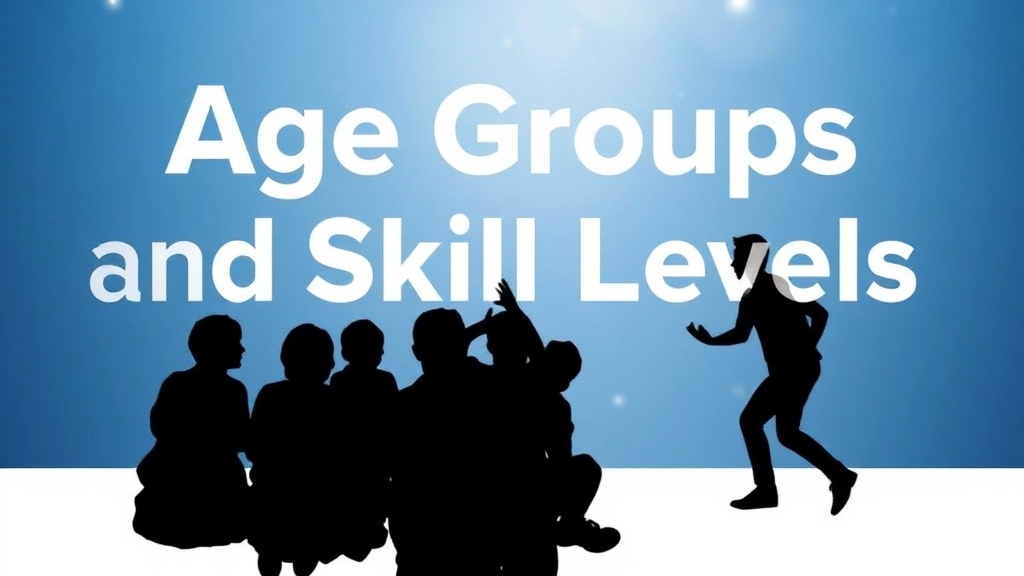
Ever wondered if your child is the right fit for a swim camp?
Or maybe you’re unsure about which camp matches their skill level?
Let’s break it down.
Age Groups:
Swim camps cater to a wide range of ages.
- Young Swimmers (5-8 years old):
- Just starting out.
- Focus on basic techniques and water safety.
- Intermediate Swimmers (9-12 years old):
- Building on fundamentals.
- Introducing more complex strokes.
- Teen Swimmers (13-18 years old):
- Advanced techniques.
- Competitive training.
Skill Levels:
Not every swimmer is the same.
Some are just getting their feet wet, while others are ready to dive into competitive waters.
- Beginner:
- Learning to float and basic strokes.
- Emphasis on fun and safety.
- Intermediate:
- Refining techniques.
- Building endurance.
- Advanced:
- Competitive training.
- Focus on speed and efficiency.
Finding the Right Fit:
It’s crucial to match your child’s age and skill level with the right camp.
This ensures they get the most out of their experience.
- Camps often have specific programs tailored to each age group and skill level.
- Check the camp’s website or contact them directly to find out more.
Real Talk:
I’ve seen kids thrive when placed in the right environment.
Imagine your child, brimming with confidence, mastering their strokes.
That’s what the right camp can do.
Why It Matters:
- Safety: Proper grouping ensures everyone is safe.
- Progress: Kids learn best when they’re with peers at the same level.
- Fun: It’s more enjoyable when the activities match their abilities.
Stories from the Pool:
- I remember a parent telling me how their 7-year-old, who was terrified of water, became a confident swimmer by the end of camp.
- Another shared how their teen, already on a high school swim team, shaved seconds off their time thanks to advanced training.
Next Steps:
- Check out our list of top camps.
- Read up on their programs.
- Get in touch and ask questions.
Age groups and skill levels matter.
Coaching and Staff Expertise
Are you worried about whether your child will get the right coaching at a summer swim camp? I get it. You want the best for your kid, and I’m here to tell you that the coaching and staff expertise at top summer swim camps in the USA is nothing short of exceptional.
Why Coaching Matters
First off, let’s talk about why coaching is so crucial. You know how a great coach can turn a good athlete into a star? That’s what we’re aiming for here. Top-notch coaching can make a world of difference in your child’s swimming skills and overall experience.
Who Are These Coaches?
So, who are these superstars guiding your kids? Imagine a blend of former Olympians, collegiate swimmers, and certified swim instructors. These aren’t just people who know how to swim; they know how to teach swimming.
- Former Olympians: These folks have been in the big leagues. They bring a wealth of experience and insider tips that you won’t find in any textbook.
- Collegiate Swimmers: These athletes are often still in their prime and can relate to younger swimmers. They bring current techniques and training methods.
- Certified Instructors: These are your bread-and-butter coaches who have gone through rigorous training and certification processes. They know how to handle kids of all ages and skill levels.
What Makes Them Stand Out?
Now, what sets these coaches apart? It’s not just their resumes, impressive as they are. It’s their approach to teaching and mentoring.
- Personalised Training: Each child gets attention tailored to their specific needs. Whether your kid is a beginner or an advanced swimmer, the coaching adapts to them.
- Motivational Techniques: These coaches know how to inspire. They use positive reinforcement, set achievable goals, and celebrate every milestone.
- Technical Expertise: From perfecting the butterfly stroke to mastering flip turns, these coaches cover it all. They break down complex techniques into simple, digestible steps.
Real Stories, Real Impact
Let me share a quick story. I remember one parent telling me how their child, who was initially afraid of deep water, ended up competing in state-level championships after just one summer camp. That’s the power of expert coaching.
Staff Support
But it’s not just the coaches who make a difference. The support staff plays a crucial role too. These are the people who ensure everything runs smoothly, from safety measures to daily activities.
Daily Camp Activities and Schedule
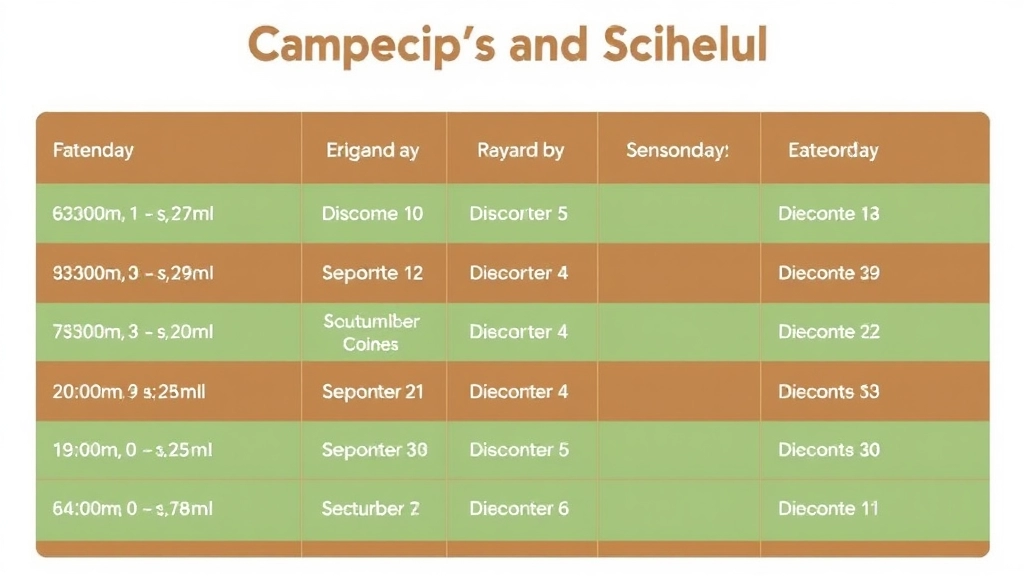
Ever wondered what a day at a top summer swim camp looks like?
Let’s dive right in.
The keyword here is Daily Camp Activities and Schedule.
We break it down so you know exactly what your kid’s getting into.
Morning Routine
First off, mornings kick off with a hearty breakfast.
Think high-energy foods to fuel those laps.
After breakfast, it’s straight to the pool.
Training Sessions
Morning swim sessions are intense.
- Warm-ups: Stretching and light swimming to get the blood flowing.
- Drills: Focused on technique—like perfecting that freestyle stroke.
- Endurance: Longer swims to build stamina.
Midday Break
After a solid morning in the pool, it’s time for a break.
Lunch is served.
Healthy, balanced meals that keep energy levels up.
Afternoon Activities
Afternoons mix it up.
- Land Training: Think strength and conditioning.
- Workshops: Covering topics like nutrition and mental toughness.
- Fun Time: Because all work and no play…you get the idea.
Evening Swim
A second swim session in the evening.
- Skill Refinement: Focusing on specific areas needing improvement.
- Cool Down: Gentle swims to relax muscles.
Evening Wind Down
Dinner follows.
Then, some downtime.
- Social Activities: Movie nights, games, or just hanging out.
- Lights Out: Early to bed to recharge for another day.
Why This Schedule Rocks
This balanced mix of training, learning, and fun keeps kids engaged.
They get better at swimming, make new friends, and learn life skills.
Got More Questions?
Check out our FAQs section for more on daily activities.
Or read what other parents have to say in our Parent Testimonials.
Your kid’s summer just got way more exciting.
Ready to sign up?
Head over to our Registration Process and Deadlines section.
Safety Measures and Supervision
Worried about your kid’s safety at a summer swim camp? You’re not alone. As a parent, ensuring your child is safe and well-supervised is priority number one. Let’s break down how top summer swim camps in the USA tackle this head-on.
Why Safety Measures Matter
Look, we get it. Sending your kid away to camp can be nerve-wracking. But here’s the good news: these camps are designed with safety as their cornerstone. From the minute your child steps onto the campgrounds to the moment they leave, every aspect is meticulously planned to keep them safe.
Comprehensive Safety Protocols
First off, safety measures are not just a checklist item; they’re a way of life at these camps. Here’s what you can expect:
- Certified Lifeguards: Every pool session is overseen by certified lifeguards who are trained to handle emergencies.
- First Aid Stations: Strategically placed first aid stations ensure quick response times for any minor injuries or health issues.
- Regular Safety Drills: Camps conduct regular safety drills to prepare both staff and campers for various scenarios, from pool evacuations to fire drills.
Supervision Ratios
A crucial aspect of safety is supervision. Here’s the lowdown:
- Low Camper-to-Staff Ratios: With a low camper-to-staff ratio, your child gets the attention they need. Typically, this ratio is around 5:1, meaning there’s always a watchful eye.
- Buddy System: Many camps implement a buddy system, pairing campers together to look out for each other. It’s a simple yet effective way to ensure no one is ever alone.
- Night Patrols: For overnight camps, night patrols are a common feature, ensuring campers are safe even when the sun goes down.
Staff Training and Expertise
Now, let’s talk about the people who make all this happen. The staff at these camps are not just any folks off the street. They’re highly trained professionals who undergo rigorous background checks and training programs.
- Background Checks: Every staff member undergoes a thorough background check to ensure they’re fit for the job.
- Specialized Training: From CPR to emergency response, staff members are trained in various safety protocols.
- Continuous Education: The learning doesn’t stop. Staff members participate in ongoing training sessions to keep their skills sharp.
Real Stories, Real Peace of Mind
Let’s get real for a second. I remember talking to a parent, Sarah, who was initially hesitant about sending her son to a swim camp. She was worried about everything from pool safety to nighttime supervision. After the first week, she couldn’t stop raving about how well-organized and safe the camp was. Her son not only had a blast but also came back with improved swim skills and newfound confidence.
Next Steps:
- Curious about the camp locations and facilities? Check out our detailed guide here.
- Looking for a broader range of activities? Explore various camp types and activities.
Still have questions? Head over to our FAQs section for more insights.
Registration Process and Deadlines
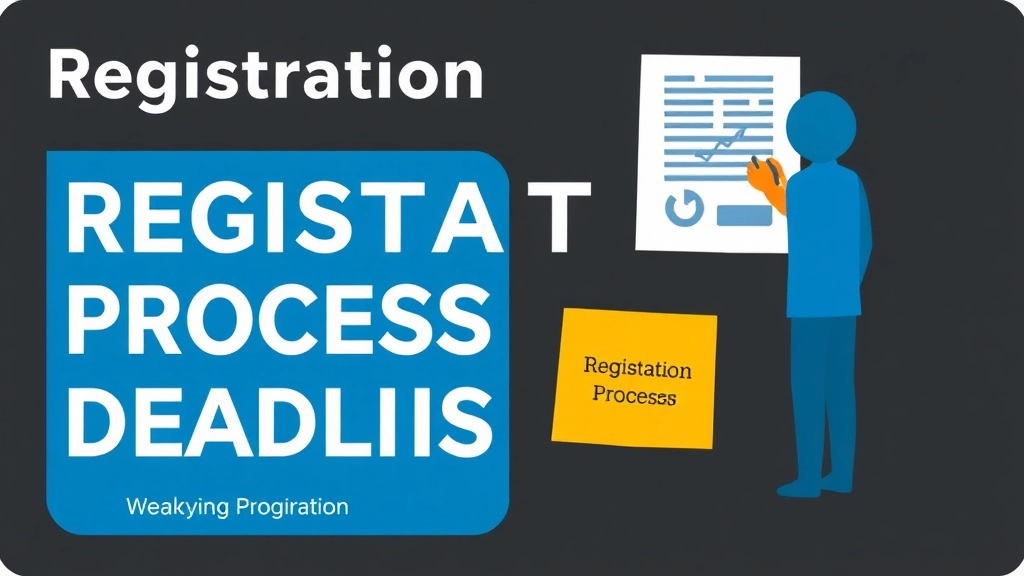
Alright, let’s talk about the registration process and deadlines for summer swim camps in the USA.
Why Do Registration Deadlines Matter?
Ever tried to book a last-minute holiday and found everything sold out? Same deal here.
Swim camps fill up fast.
Miss the deadline, and your kid might miss out on the best summer ever.
How to Register
- Find Your Camp:
- Browse through the list of top summer swim camps.
- Look for camps that fit your child’s age, skill level, and interests.
- Visit the Camp’s Website:
- Each camp has its own registration page.
- Look for a “Register Now” button. Can’t miss it.
- Fill Out the Form:
- Basic info: Name, age, and swimming experience.
- Medical details: Any allergies or special needs.
- Payment details: Most camps accept credit cards, some even have payment plans.
- Submit and Confirm:
- Double-check all info.
- Click submit.
- You’ll usually get an email confirmation. If not, call them up just to be sure.
Key Deadlines to Watch
- Early Bird Registration:
- Usually opens in January or February.
- Best rates and guaranteed spots.
- Regular Registration:
- March to May.
- Spots start filling up, and prices might go up.
- Late Registration:
- June onwards.
- Limited availability and higher prices.
Pro Tips for Smooth Registration
- Set Reminders:
- Put the registration dates in your calendar.
- Prepare Documents:
- Have medical records and payment info ready.
- Check Refund Policies:
- Life happens. Know what happens if you need to cancel.
Real Talk: What Parents Worry About
- “What if I Miss the Deadline?”:
- Call the camp. Sometimes they have waitlists or last-minute openings.
- “Is the Registration Process Complicated?”:
- Not really. If you can order a pizza online, you can do this.
- “How Do I Know If My Kid Got In?”:
- You’ll get a confirmation email. If not, follow up.
Ready to dive in? Start the registration process now and secure that spot!
For more details on specific camps, check out our Top Summer Swim Camps in the USA section.
Got questions? Head over to our FAQs for more answers.
Parent Testimonials and Reviews
Alright, let’s get real for a second. As a parent, you’re probably asking, “Is this summer swim camp worth my time and money?” I get it. You want to make sure your kid is not only safe but also getting the best experience possible. So, let’s dive into some real-life parent testimonials and reviews that will give you a clear picture.
Real Talk: What Parents Are Saying
“Will my child actually improve their swimming skills?”
Absolutely. Parents rave about the noticeable improvements in their children’s swimming techniques after just a week at camp. One parent shared, “My daughter went from barely treading water to confidently swimming laps. The coaches really know their stuff!”
“How’s the staff? Are they qualified and friendly?”
Parents can’t stop talking about the expertise and friendliness of the coaching staff. One dad mentioned, “The coaches are phenomenal. They not only have impressive credentials but also know how to connect with the kids. My son came home every day excited to share what he learned.”
“Is the camp environment safe and well-supervised?”
Safety is a top priority, and parents feel reassured by the stringent safety measures in place. One mum said, “I was initially worried about supervision, but the camp exceeded my expectations. Lifeguards were always on duty, and the staff-to-camper ratio was excellent.”
“What about the facilities? Are they up to par?”
Facilities are another big talking point. One parent noted, “The swimming pools are top-notch, and the overall setup is very professional. My child felt like they were training at an Olympic facility.”
Real Stories, Real Results
Let’s break it down with some real examples:
- Skill Improvement: One parent mentioned how their child, who was initially afraid of water, ended up joining their school’s swim team after attending the camp.
- Confidence Boost: Another parent shared that their shy and introverted child came out of their shell, making new friends and even taking on leadership roles during camp activities.
- Lifelong Memories: Many parents highlight the lasting friendships and unforgettable experiences their kids gain. One mum said, “My daughter still talks about the friends she made and the fun she had, months after the camp ended.”
The Bottom Line
So, is it worth it? Based on these glowing reviews and heartfelt testimonials, the answer is a resounding yes. Parents are not just satisfied; they’re thrilled with the results. Whether it’s the expert coaching, top-notch facilities, or the safe and engaging environment, this summer swim camp checks all the boxes.
If you’re looking for more summer camp options, check out our guide on top summer track camps for all ages and skills or explore the top 10 exciting summer camp activities to make the most of your child’s summer experience.
Frequently Asked Questions (FAQs)
What Are the Top Summer Swim Camps in the USA?
You’re probably wondering which camps are the best for your kid, right?
Well, let me break it down for you.
SwimMAC Carolina and Bolles School Sharks are top-tier.
They’ve got stellar reviews and top-notch facilities.
How Do I Choose the Right Camp for My Child?
This is a biggie.
You want to make sure the camp fits your child’s needs.
Here’s what to look for:
- Skill Level: Beginner, intermediate, or advanced?
- Age Group: Camps often cater to specific age ranges.
- Specialized Training: Does your kid need technique refinement or endurance training?
What Should I Pack for Swim Camp?
Packing can be a headache, right?
Here’s a quick checklist:
- Multiple swimsuits
- Goggles
- Towel
- Sunscreen
- Water bottle
- Snacks
How Safe Are These Camps?
Safety is a top concern for all of us.
Most camps have certified lifeguards and 24/7 supervision.
They also follow strict safety protocols.
Can Parents Visit During Camp?
Absolutely.
Many camps have designated visiting hours.
It’s a great way to see how your kid’s doing and meet the coaches.
What’s the Daily Schedule Like?
Curious about what a typical day looks like?
Here’s a sneak peek:
- Morning: Warm-ups and swim drills
- Afternoon: Technique training and games
- Evening: Cool-downs and team activities
How Do I Register?
Registration is usually straightforward.
Most camps have an online registration form.
Just fill it out, pay the fee, and you’re good to go.
What If My Child Has Special Needs?
Many camps are inclusive and cater to kids with special needs.
Just make sure to communicate your child’s requirements ahead of time.
How Much Does It Cost?
Costs can vary.
On average, you’re looking at £200-£500 per week.
Some camps offer scholarships or discounts.
What Do Other Parents Say?
Parent testimonials can be super reassuring.
Check out reviews on the camp’s website or social media pages.
You’ll get a real sense of what to expect.
Frequently Asked Questions (FAQs) about Summer Swim Camps
What are the benefits of specialized training programs at summer swim camps?
Specialized training programs at summer swim camps provide tailored workouts, personalized coaching, and focused drills designed to take your child’s swimming skills to the next level. These programs focus on stroke technique, endurance training, speed work, strength conditioning, and mental training.
How do I know if my child should enroll in a specialized training program?
If your child is serious about swimming, dreams of smashing personal bests, or aims to make the school team, then a specialized training program is ideal for them. These programs offer personal attention, custom plans, rapid improvement, and a significant confidence boost.
What age groups do swim camps cater to?
Swim camps cater to a wide range of ages:
- Young Swimmers (5-8 years old): Focus on basic techniques and water safety.
- Intermediate Swimmers (9-12 years old): Building on fundamentals and introducing more complex strokes.
- Teen Swimmers (13-18 years old): Advanced techniques and competitive training.
How are skill levels categorized at swim camps?
Skill levels at swim camps are typically categorized as follows:
- Beginner: Learning to float and basic strokes with an emphasis on fun and safety.
- Intermediate: Refining techniques and building endurance.
- Advanced: Competitive training with a focus on speed and efficiency.
What does a typical day at a summer swim camp look like?
A typical day includes:
- Morning Routine: Hearty breakfast followed by intense morning swim sessions.
- Midday Break: Lunch and some downtime.
- Afternoon Activities: Land training, workshops, and fun activities.
- Evening Swim: Skill refinement and cool-down sessions.
- Evening Wind Down: Dinner, social activities, and early to bed.
Why do registration deadlines matter for summer swim camps?
Registration deadlines are crucial because swim camps fill up fast. Missing the deadline might mean missing out on the best summer experience for your child.
How do I register my child for a summer swim camp?
The registration process typically involves:
- Finding the right camp that fits your child’s age, skill level, and interests.
- Visiting the camp’s website and filling out the registration form.
- Providing basic info, medical details, and payment information.
- Submitting the form and confirming the registration.
What are the key registration deadlines to watch?
- Early Bird Registration: Opens in January or February with the best rates and guaranteed spots.
- Regular Registration: From March to May, spots start filling up, and prices might increase.
- Late Registration: From June onwards, availability is limited, and prices are higher.
What should I do if I miss the registration deadline?
If you miss the deadline, call the camp. Sometimes they have waitlists or last-minute openings.
Is the registration process complicated?
Not at all. If you can order a pizza online, you can register your child for a swim camp.
How do I know if my child got into the camp?
You’ll receive a confirmation email. If you don’t, follow up with the camp to ensure your child’s spot is secured.
References
-
Top 10 Summer Swim Camps in the USA
-
USA Swimming: 2024 Summer Swim Camps
-
SwimSwam: Best Summer Swim Camps 2024

